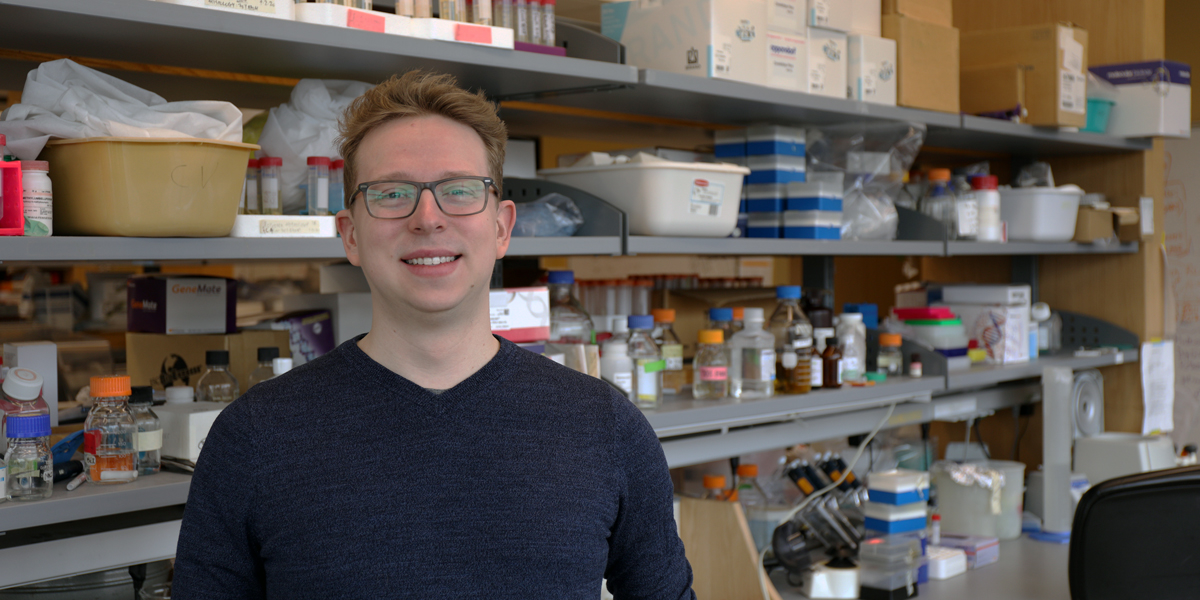
Read up on the latest gene therapy advances, and new technologies and data are often front and center. The field is expanding rapidly and shows no signs of a slowdown. That push into new realms of research piqued Miles Smith’s interest. We recently caught up with the recent graduate of the Molecular, Cellular, Developmental Biology and Genetics program to hear about his time at the University and what he hopes his post-graduation career entails.
What are you currently working on and what interests you in this area of research?
My current projects are an AAV-based gene therapy study for Hunter syndrome. The other is contributing to a gene-editing project for ART-SCID. These two projects encompass my overall interest in gene therapy – one using gene transfer and the other gene editing as potential methods to treat genetic diseases and evaluating them in a preclinical setting.
What are your long-term plans?
Moving forward, I’m definitely looking forward to getting involved on the industry side of the field. During my doctoral research, I really enjoyed managing preclinical studies, some in collaboration with companies, in an effort to move treatments forward into a clinical setting. Hopefully I’d be able to fulfill a similar role in industry and help companies bring gene therapy products to the clinic. Overall, I’d love to be able to say I helped to develop a gene therapy that has a meaningful impact on patients’ lives.
What has stood out to you in your time in the MCDB&G graduate program?
One of my favorite parts of my graduate program was working with my lab members. Even though we all have our own tasks, everyone is willing to discuss and help out on every project. A team-orientated approach is vital when undertaking preclinical work, and my time in Scott McIvor's lab really solidified that idea for me. One opportunity that was impactful for me was attending (and presenting) at conferences. Learning to communicate your science to other scientists (and non-scientists!) is a valuable skill and conferences are an amazing place to learn a lot about it in a short time period. It's also an environment with other experts in your field who are doing awesome work, and seeing the results of their projects definitely revitalized enthusiasm for my own.
What are new and exciting areas in your research field that you're interested in discovering?
The field of gene therapy/gene editing is evolving so rapidly, which naturally leads to lots of exciting research areas. Delivery has become a big focus. Questions related to routes of administration and tissue targeting will be central to precise genetic medicines. The vast array of gene editing tools allows for new possibilities in treating disease that couldn’t be previously addressed, as well as enabling the study of more fundamental biology questions.